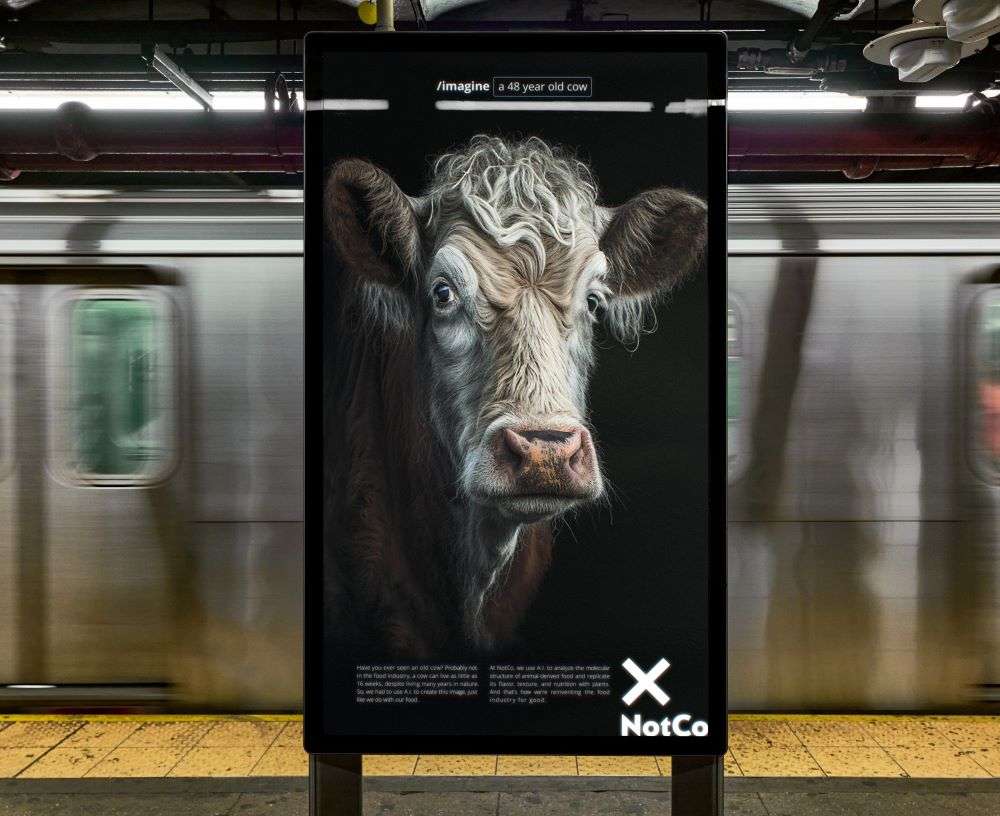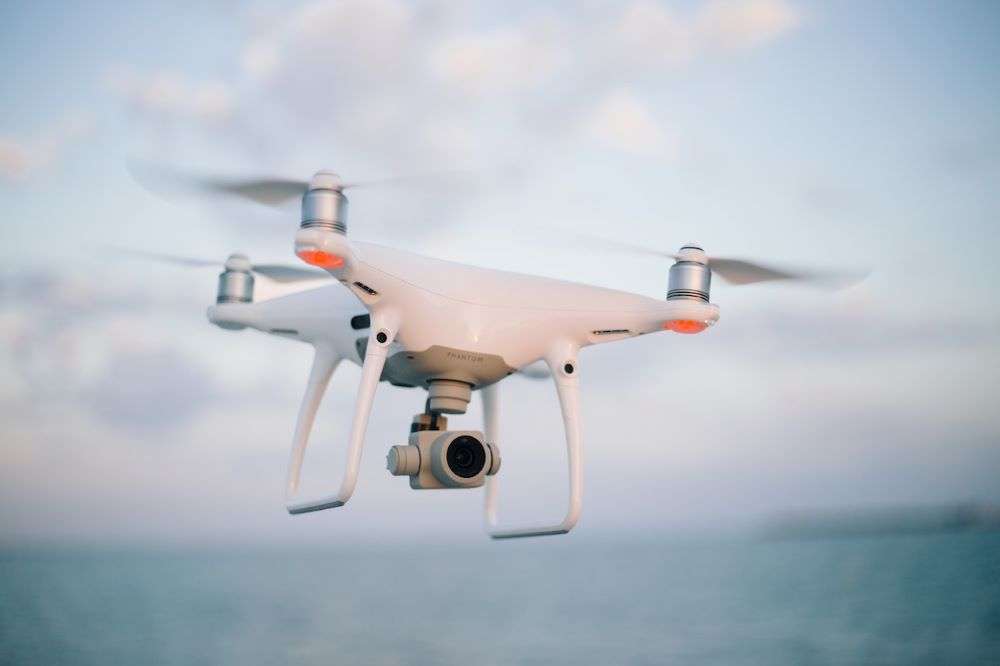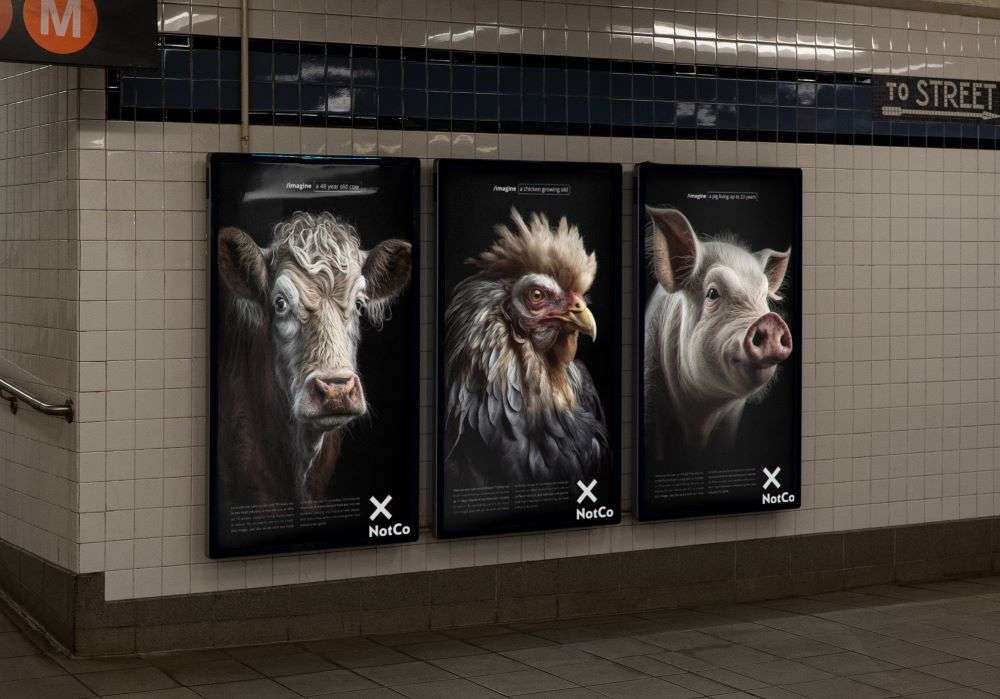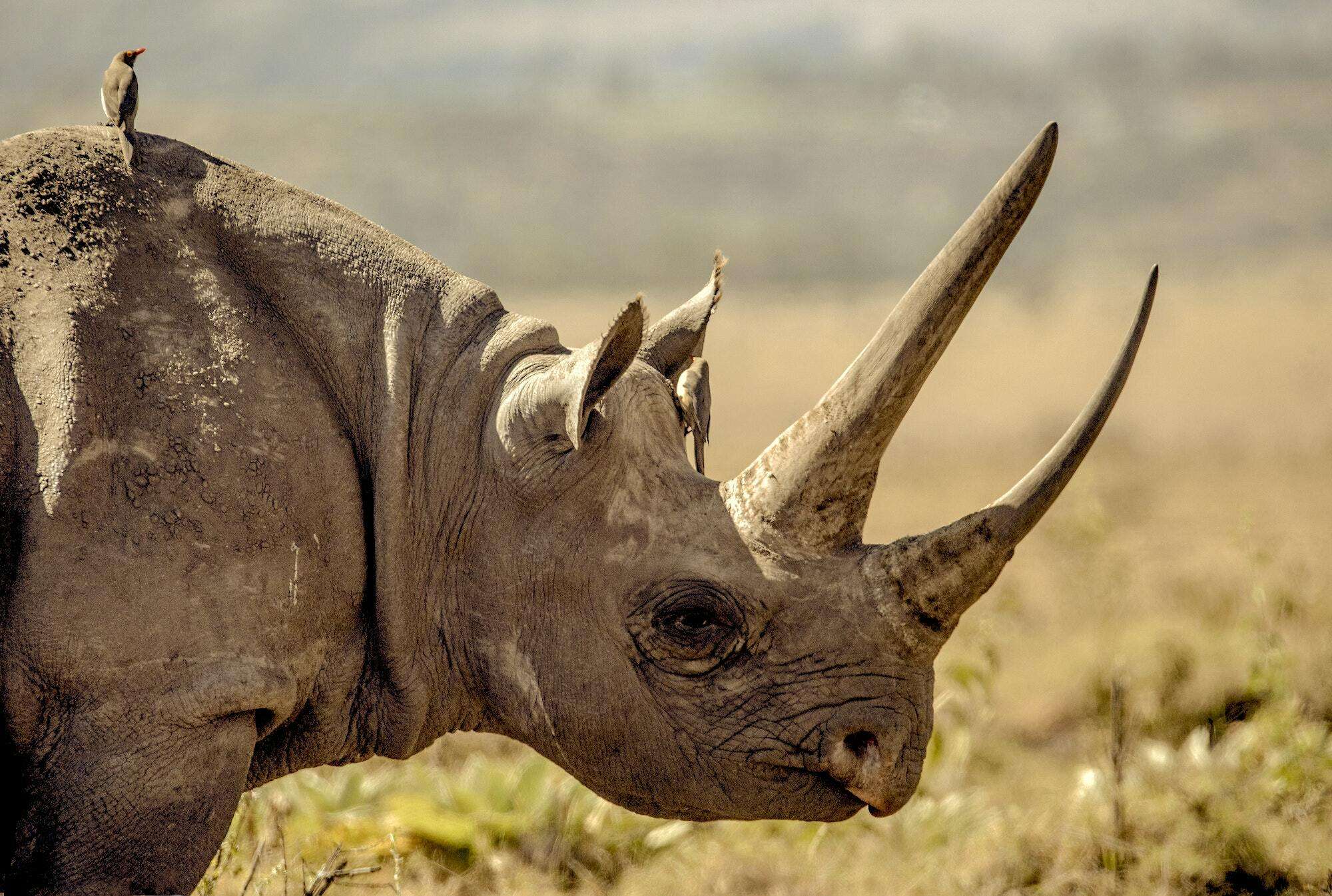From revolutionizing the food system to protecting wildlife, A.I. is increasingly being used to help animals in need.
Have you ever seen an old cow? How about an old pig? If you haven’t, it’s no surprise why. The vast majority of farm animals have their lives tragically cut short as a result of the animal agriculture industry.
For example, the natural lifespan of a cow is between 15 and 20 years. However, on factory farms, dairy cows rarely make it past the age of five. Beef cattle are slaughtered even earlier — usually between the ages of one and two.
But, with the release of a new ad campaign, Chilean food tech company NotCo is working to shine a light on the plight of farm animals. And it’s doing so with the help of an innovative technology — artificial intelligence.

NotCo released a series of hyper-realistic, A.I.-created images, which will be displayed on billboards and print ads through the end of Earth Month. The ads depict farm animals in their old age.
“Imagine a 48-year-old cow,” reads one ad. “These animals live decades in nature but only months or days in the food industry. So, this image was created using A.I., just like our food.”
Using artificial intelligence for good
Founded in 2015 by three technologists, NotCo is backed by a number of celebrities, including Lewis Hamilton and Questlove.
The brand makes a variety of plant-based products like chicken, burger meat, ice cream, and milk. NotCo uses a proprietary artificial intelligence platform called Giuseppe to help it recreate common animal products from plant ingredients.
Sounds like something straight out of a Sci-Fi flick, right? Here’s how it works. First, Giuseppe generates a bunch of recipes for any given product, matching things like flavor, texture, and nutrition, among other characteristics. A group of chefs test out the recipes in a kitchen and then the product is judged by a trained panel.
“The trained panel gives feedback to the algorithm. Maybe the formulation was good or bad, we feed back the algorithm with the good things and the bad things,” NotCo’s CEO and founder, Matias Muchnick, told The Spoon. “So we feedback the algorithm with the many dimensions of the sensory aspects.”

The application of A.I. in the food market and across other sectors is rapidly increasing as companies realize its potential for streamlining the production process, spurring innovations in new products, reducing errors, and maximizing profits.
Of course, A.I. isn’t without its drawbacks. For one, it can be expensive to generate and operate. It also has a high carbon footprint. Training one A.I. model can result in more than 626,000 pounds of carbon dioxide equivalent, according to MIT Technology Review. This equates to the amount of carbon emitted from five cars in their lifetime.
Moreover, artificial intelligence is emotionless, which raises ethical concerns and can result in a lack of creativity, transparency, and common sense. A.I. can also have biased programming, which is clearly evident with OpenAI’s left-leaning artificial intelligence chatbot ChatGPT.
How A.I. is being used to help animals
Despite whatever disadvantages it may have, brands are still able to use the innovative technology for good. Similar to NotCo, a number of companies are turning to the power of artificial intelligence to help animals in need.
One area where artificial intelligence has proved especially useful is in conserving wildlife. Scientists are able to use A.I.-powered image recognition software to monitor the habitats and behavior of animals, including migration patterns. It also proves useful for quickly combing through thousands of photos to detect rare or endangered species.
Popular editing software, Picsart, offers a similar ability to this, as it can use A.I. to improve photos and even leave images with no background, giving us an intimate and distraction-free view into the wildlife.

Artificial intelligence, including A.I.-enabled drones, can be used to detect potential threats posed to animals, such as poachers. For example, Dutch tech company Hack the Planet’s A.I. system is able to detect poachers in real-time.
Machines could also prove to be a cruelty-free — and far more accurate — alternative to animal testing. Many studies show that animal tests are largely unreliable because they aren’t able to successfully mimic how drugs or chemicals react with human bodies.
“Currently, drugs are developed and then tested in mice in order to determine their suitability for humans. Mice are terrible predictors,” Dr. Isaac Bentwich told BioSpace. Dr. Bentwich is the founder and CEO of Quris, an Israel-based pharmaceutical A.I. firm “Out of all the drug candidates today that have in vitro and in vivo testing and then enter into clinical trials, 89 percent fail. That’s quite dramatic when you stop and think about it.”

In lieu of animal models, computer models can be used to analyze data in order to predict how a certain substance would react in the human body.
“We believe that [by] using […] powerful A.I., we can replace outdated and ineffective mice experiments, or at least reduce them,” Dr. Bentwich added.
For NotCo, the company hopes the use of A.I. will help bring about a more compassionate future. “We hope this sparks a larger conversation about how we can all do our part to create a better future together—for ourselves, our planet, and the animals,” the company’s Global CMO, Fernando Machado, said in a release.
Related on Ethos:


